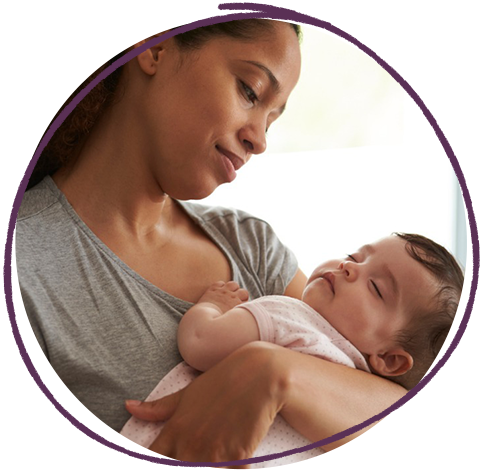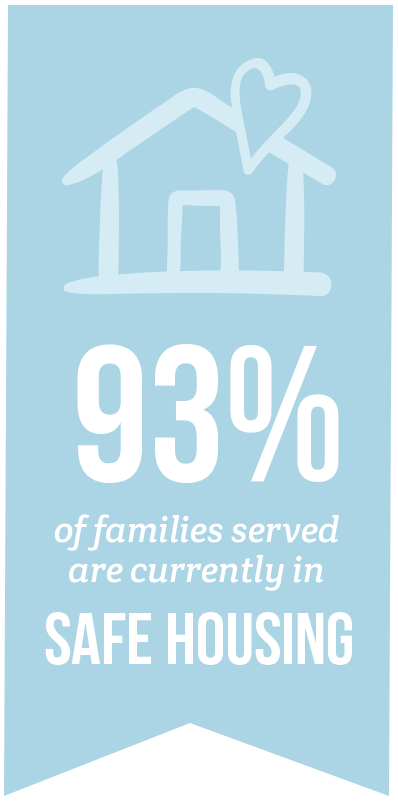Our full-time Housing Specialist helps each shelter resident overcome their individual barriers, secure permanent housing, and build a housing portfolio that shows they can be a successful renter. We work with numerous community agencies to connect survivors with rental assistance and long-term housing solutions, including the YWCA of Greater Portland and YWCA Clark County, El Programa Hispano – Proyecto UNICA, Volunteers of America Home Forward, local housing authorities, NAYA, IRCO, and Impact NW, as well as local property management companies. Our Housing Specialist also works with organizations like the Credit Builders Alliance and Innovative Changes to help participants build credit and reduce barriers to finding safe and stable homes.
To ensure a smooth transition into housing, we also help families get comfortably settled by providing a move-out kit with household and kitchen items, vouchers to Community Warehouse, furniture delivery, and provide ongoing access to essentials (all of which are donated) such as kitchen and housewares, bedding, toiletries and baby items, food boxes, cleaning supplies, and safety needs including alarm systems and 911 phones. All residents maintain access to supportive services through our Advocacy Center upon moving out.
Our Home in Hand/Hogar en Mano Housing Program offers rental and utility assistance and intensive ongoing case management to 12-16 families each year, providing a critical bridge between emergency shelter and permanent housing for domestic violence survivors.
To ensure a smooth transition and promoting long-term stability, our Housing Program Coordinator is there for families every step of the way – supporting with the rental agreement process, helping them move in and furnish their new home through our partners at Community Warehouse, and via frequent follow-ups and home visits. We also help families get comfortably settled and provide ongoing access to essentials (all of which are donated) such as kitchen and housewares, bedding, toiletries and baby items, food boxes, cleaning supplies, and safety needs including alarm systems and 911 phones.
To help them be successful, families also receive employment and school assistance, resource navigation support, and benefit from our savings account matching program.
With the support of our Housing Program Coordinator, each participant creates a self-directed plan with specific goals, which may include budgeting, job or education plans, schooling for children, DHS involvement, immigration issues, and more. This program’s combination of accessible support and self-directed goals helps participants make long-term plans for life beyond transitional housing.
All Home in Hand/Hogar en Mano participants also have constant access to our Advocacy Center programs including support groups in both English and Spanish, youth programming and advocacy, economic empowerment workshops, and ongoing case management – even after they have “graduated” from the program.
We host the Shelter to Stability program, which helps domestic violence survivors in Multnomah County’s three emergency shelters (including Raphael House) overcome barriers to housing and achieve goals of stability. Through this program, we assist individuals with housing readiness, debt removal or reduction, and building networks of support.
These services recently expanded to include the S.W.A.G. Mentor Program (Survivors are Worthy, Awesome, and Gutsy), which is a survivor-led mentorship group that meets weekly to learn about life skills that help families stay housed. Our new Family Services Advocate will further support survivors in building long-term stability as they transition from shelter into housing.

